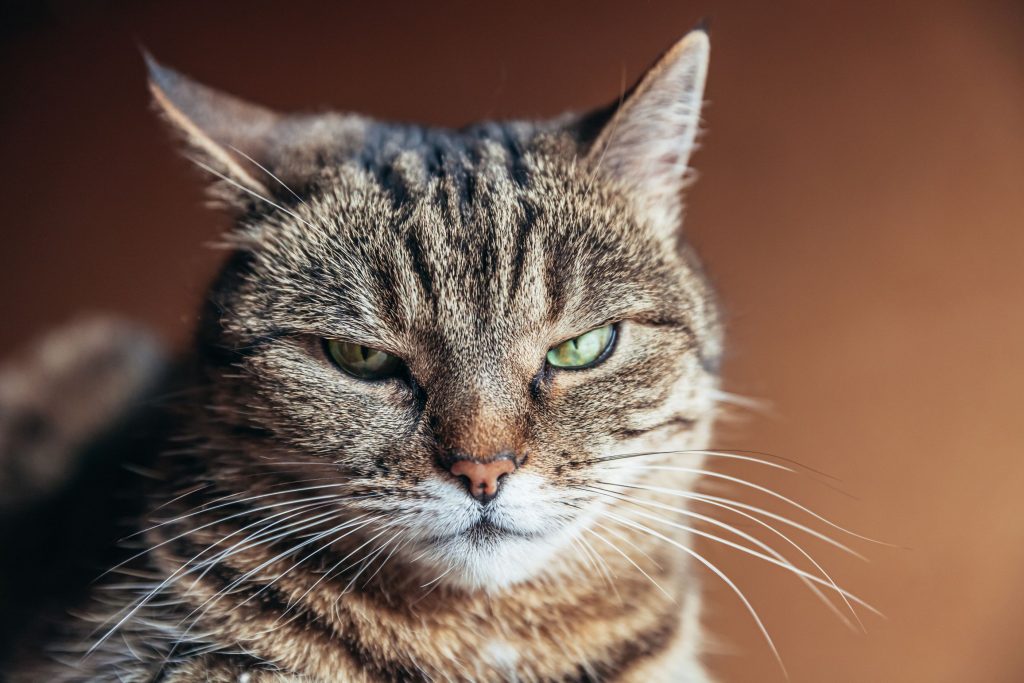
Senior Cat Care for Your Aging Fluffball

If you’ve been the faithful companion to your aging cat since they were a delightfully zany kitten, you know well the satisfaction that comes with full-arc ownership. Knowing a cat for their entire life is such a beautiful experience. Senior cat care can throw some owners for a loop, however. As they age their health, lifestyle, and environmental needs change. Here are our tips on senior cat care needs:
A Different Pace
Unfortunately, cats age at an approximate rate of seven years to every one of ours. Around their seventh year, cats are considered seniors. With each passing year, they may show that certain aspects of their home life and health could benefit from some modifications.
Setting the Stage
A great way to stay in front of any possible shifts is to increase annual routine wellness exams to every 6 months. This extra time with your senior cat can help us spot age-related problems early on, leading to more effective treatment and a better prognosis. We also use this extra time to help your cat feel as comfortable as possible, including an approach to pain medication due to arthritis, or address dental issues that cause discomfort.
Certain diagnostics, like blood and urine tests, can help us figure out how a senior cat feels, and create a treatment plan to curb the development of disease. Making sure they are up-to-date with the vaccinations and parasite prevention can help protect their weakening immune systems.
Altered Nutritional Needs
The nutrients necessary for a growing kitten or active adult may vary between what a senior cat needs as they age. They can develop a sensitive stomach, or have digestion issues. They might also have dental pain from periodontal disease that can make it hard for cats to chew hard kibble. We can help you determine the right food for your aging cat, and clarify which nutrients will help them maintain optimal health.
Environmental Considerations
Senior cat care hinges on making sure they are safe in their own home. Previously, jumping to high places or balancing on crazy surfaces were easy for them, but senior cats often suffer from joint and muscle pain.
We recommend reducing the temptation for your cat to jump or balance as they did before. Keep things interesting on lower ground, or if you want to keep them climbing, install safety features that reduce the risk of injury from falls. Ramps, pet steps, and staggered platforms may still be used as your cat ages.
Keep ‘Em Playing
You may be surprised that your senior cat still likes to play and chase the same ways they did when they were a little trouble-making kitten. You certainly don’t want to over-exert your senior cat, but it’s wise to keep their mental and physical interest going strong.
Senior Cat Care for the Win
If you’re considering adopting a senior cat, get ready for one of the most meaningful relationships to take hold of your heart. There are many senior cats that need homes. Getting to know one of these golden oldies could have a very positive impact on you and your family.
Please call us at (703) 920-5300 with any questions or concerns about senior cat care. Our staff at Arlington Animal Hospital is always here for you!
Contact Us!
2301 Columbia Pike #G-1, Arlington, VA 22204
Phone: (703) 920-5300
Fax: (703) 685-8860
Email: info@myarlingtonvet.com
Office Hours
-
Monday
8 a.m. – 8 p.m.
-
Tuesday
8 a.m. – 8 p.m.
-
Wednesday
8 a.m. – 6 p.m.
-
Thursday
8 a.m. – 6 p.m.
-
Friday
8 a.m. – 6 p.m.
-
Saturday
8 a.m. – 2 p.m.
-
Sunday
CLOSED
- Doctors’ hours are by appointment only.



